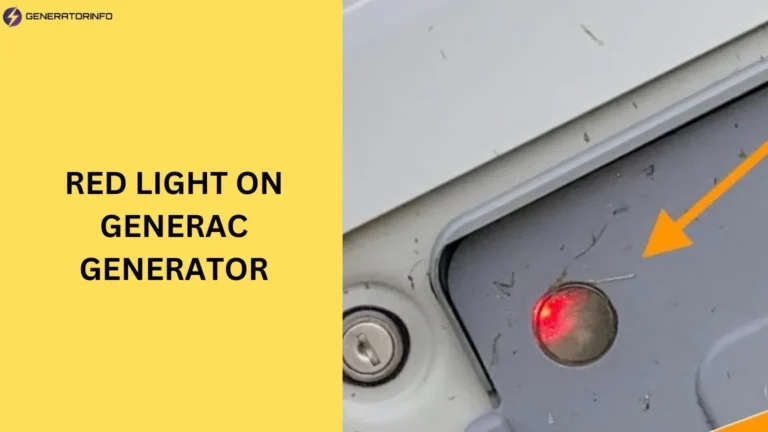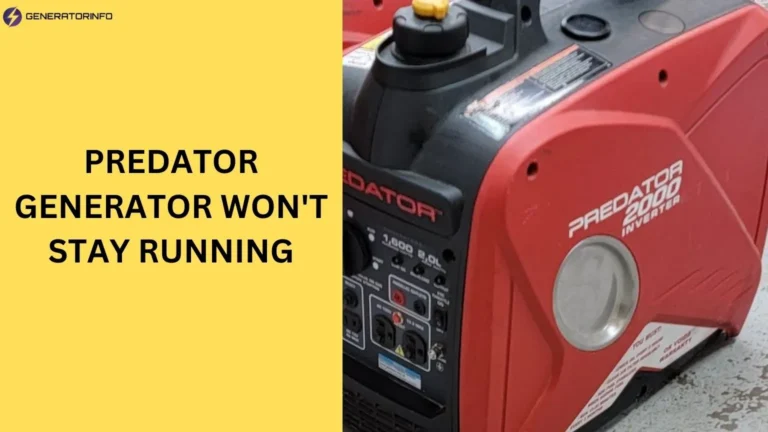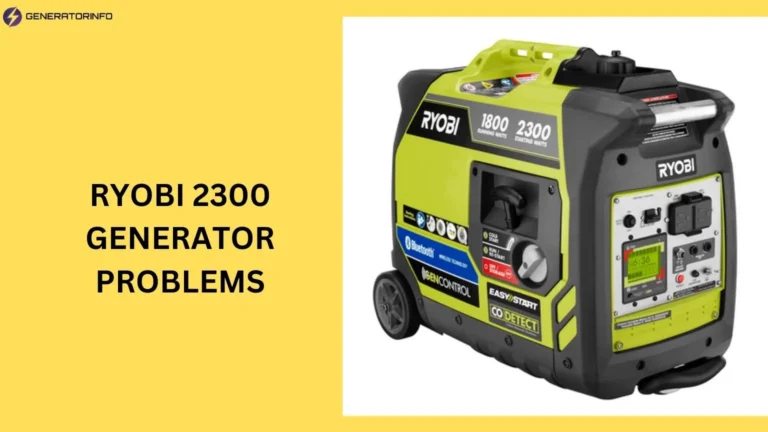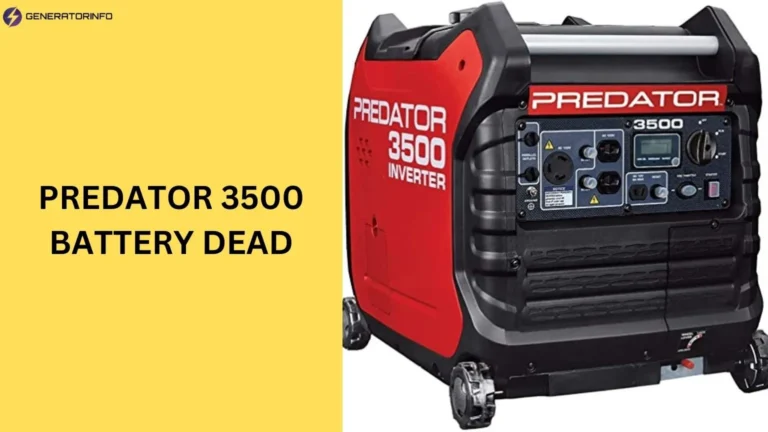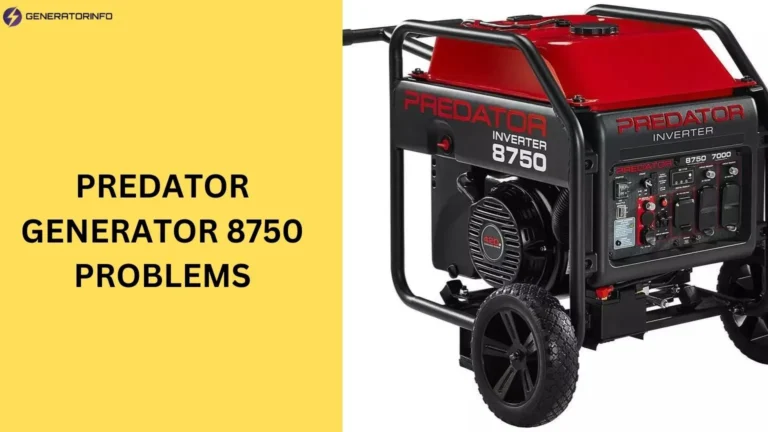What Causes Generator Overcrank? (Guide) Of 2025
Generators are essential for providing power during outages or in remote locations, but they can experience issues just like any other machine. One common problem is generator overcrank.
Understanding what causes generator overcrank and how to address it can save you from potential headaches and ensure your generator operates smoothly when you need it most.
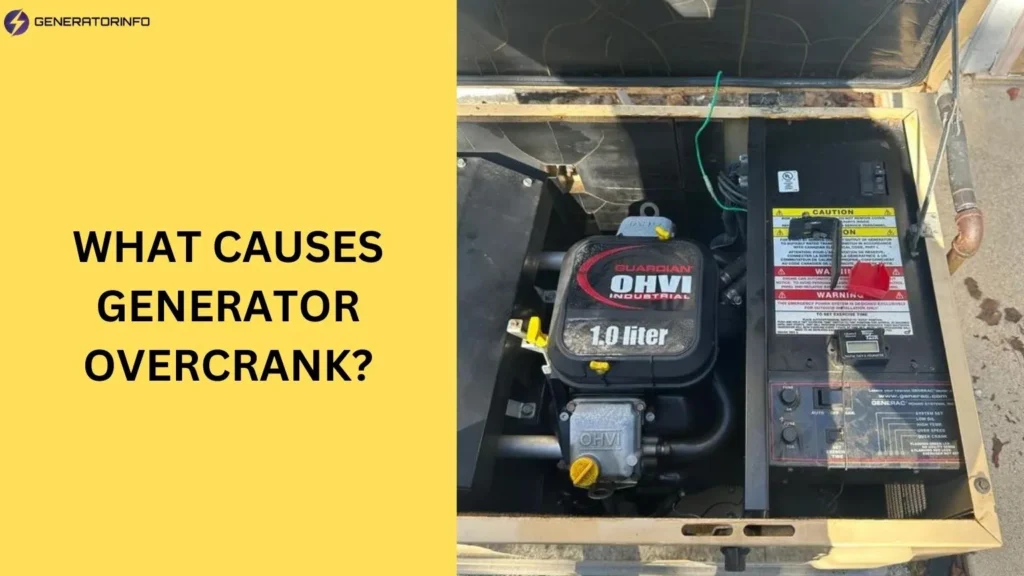
What Causes Generator Overcrank?
A generator overcrank occurs when a generator fails to start properly after multiple attempts. During the overcrank condition, the generator’s engine cranks excessively without successfully starting.
This problem can be caused by several factors, ranging from mechanical issues to fuel system problems.
Common Causes of Generator Overcrank
Generator overcrank can be frustrating and indicate underlying issues with your generator. Here are the most common causes of this problem:
1. Fuel Supply Issues
Fuel supply problems are a frequent cause of generator overcrank. If the generator is not receiving the proper amount of fuel, it will struggle to start. Common issues include:
- Empty Fuel Tank: The most straightforward issue is simply running out of fuel.
- Clogged Fuel Filter: A clogged filter can restrict fuel flow, preventing the engine from starting.
- Contaminated Fuel: Water or debris in the fuel can cause starting problems.
2. Battery Problems
A weak or dead battery can also lead to generator overcrank. The battery provides the power needed to crank the engine, so if it’s not functioning correctly, the engine may not start. Key battery issues include:
- Low Charge: Batteries that are not fully charged may not provide enough power to start the generator.
- Corroded Terminals: Corrosion on battery terminals can interfere with the flow of electricity.
3. Starter Motor Issues
The starter motor is responsible for initiating the engine’s cranking process. If the starter motor fails, the generator may crank excessively without starting. Issues with the starter motor include:
- Faulty Starter Motor: A defective starter motor may not engage properly.
- Worn-Out Starter Relay: A worn-out relay can prevent the starter motor from functioning correctly.
4. Engine Problems
Mechanical issues within the engine itself can also cause overcrank. Some common engine-related issues include:
- Compression Problems: Low compression in the engine can prevent it from starting properly.
- Timing Issues: Incorrect timing can lead to inefficient cranking and starting problems.
5. Electrical System Failures
The electrical system of a generator plays a crucial role in its operation. Problems with the electrical system can lead to overcrank conditions. Common issues include:
- Faulty Ignition System: If the ignition system is not working correctly, the engine may fail to start.
- Wiring Problems: Damaged or loose wiring can disrupt the starting process.
How to Diagnose Generator Overcrank?
Diagnosing generator overcrank involves a systematic approach to identify the root cause of the problem. Here’s a step-by-step guide to help you troubleshoot effectively:
1. Check Fuel Levels and Quality
Ensure that the fuel tank is full and the fuel is clean. Replace the fuel filter if it appears clogged and use fresh fuel if necessary.
2. Inspect the Battery
Check the battery’s charge and connections. Clean any corrosion from the terminals and ensure the battery is fully charged.
3. Examine the Starter Motor
Listen for unusual sounds when the generator is cranking. If the starter motor seems faulty, consider having it inspected or replaced.
4. Assess Engine Health
Perform a compression test to check for low compression. If you suspect timing issues, consult a professional to verify the engine’s timing.
5. Evaluate the Electrical System
Inspect the ignition system and wiring for any visible damage or faults. Ensure all connections are secure.
Preventing Generator Overcrank
Preventing generator overcrank is crucial for ensuring your generator operates smoothly and reliably. Regular maintenance and proper care can significantly reduce the chances of encountering overcrank issues. Here are some key strategies for prevention:
1. Regular Maintenance
Regular maintenance is key to preventing overcrank issues. Follow the manufacturer’s maintenance schedule for oil changes, filter replacements, and other necessary checks.
2. Proper Fuel Management
Always use high-quality fuel and store it properly to avoid contamination. Replace fuel filters as recommended.
3. Battery Care
Maintain the battery by keeping it clean and charged. Regularly check the battery’s condition and replace it when necessary.
4. Engine Inspection
Have the engine inspected periodically to ensure it is in good working condition. Address any issues promptly to avoid starting problems.
People also ask
How do you fix an overcrank on a generator?
To fix an overcrank on a generator:
Check Fuel Supply: Ensure the tank is full and the fuel is clean. Replace the fuel filter if it’s clogged.
Inspect the Battery: Verify that the battery is charged and terminals are clean. Replace the battery if it’s faulty.
Examine the Starter Motor: Listen for abnormal sounds and test the starter motor. Replace if necessary.
Check Engine Health: Perform a compression test and verify engine timing. Address any mechanical issues.
Review the Electrical System: Inspect the ignition system and wiring for faults. Repair or replace damaged components.
What is over crank code for Generac?
The overcrank code for Generac generators is typically indicated by a fault code or alarm that signals multiple unsuccessful starting attempts.
For many Generac models, this is often displayed as a “Fault Code 1500” or similar error code on the control panel.
Consult your generator’s manual or service guide for specific code details and troubleshooting steps.
What does overcrank mean on a Kohler generator?
On a Kohler generator, “overcrank” means the generator has attempted to start multiple times without success.
This condition indicates a problem with the starting process, which could be due to issues with the fuel supply, the battery, the starter motor, or other engine components.
Why is my generac generator cranking but not starting?
If your Generac generator is cranking but not starting, it could be due to:
Fuel Issues: Empty tank, clogged filter, or contaminated fuel.
Battery Problems: Weak charge or faulty connections.
Starter Motor Issues: Faulty starter motor or relay.
Engine Problems: Low compression or timing issues.
Electrical Failures: Faulty ignition system or wiring problems.
Conclusion: What Causes Generator Overcrank?
In Conclusion, What Causes Generator Overcrank? Generator overcrank can be a frustrating issue, but understanding its causes and taking preventive measures can help keep your generator in top shape.
Regular maintenance, proper fuel management, and timely repairs are crucial for avoiding overcrank conditions. If you encounter persistent issues, consulting a professional can provide additional insights and solutions.


